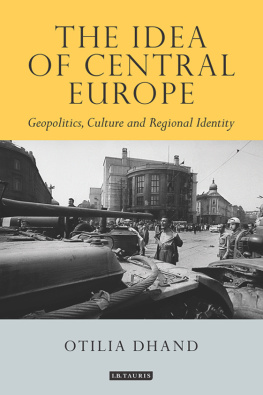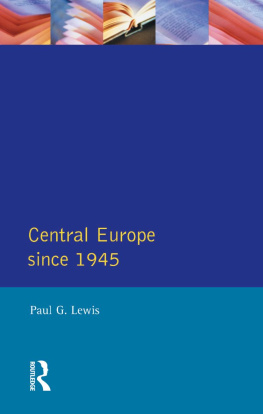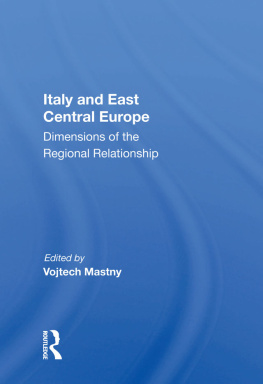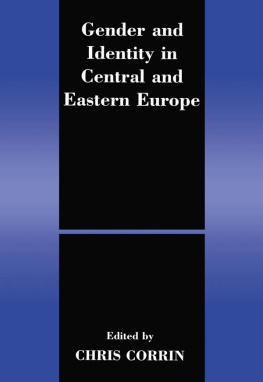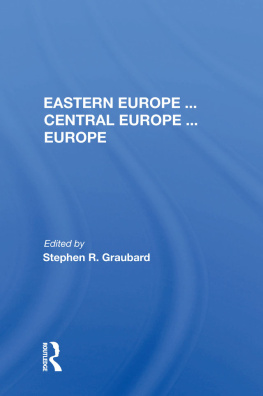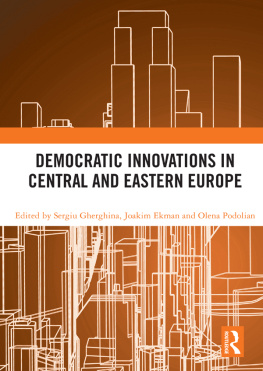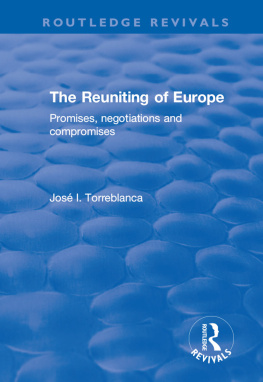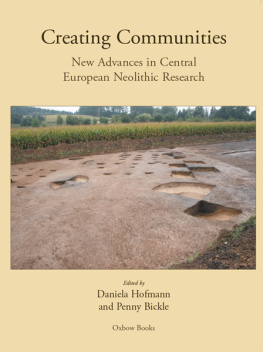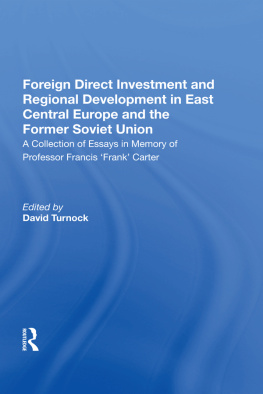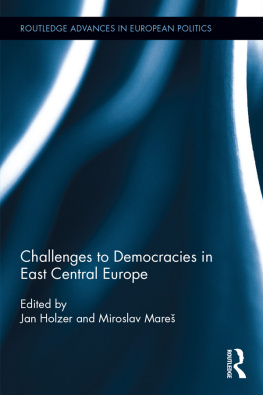
Otilia Dhand is Senior Vice President at Teneo Intelligence, a New York based political risk consultancy, where she focuses on the countries of Central and Eastern Europe. She holds a PhD in Geopolitics from King's College London, a degree in Russian and East European Studies from St Antony's College, University of Oxford, and a degree in International Relations and Diplomacy from Matej Bel University in Slovakia. She is regularly quoted in the international media, including the Financial Times, the Wall Street Journal, CNN and Reuters, and she frequently appears in live commentaries and expert debates on the BBC, Bloomberg TV and CNBC.
The small states of Central and Eastern Europe are embracing nationalism and populism while losing trust in liberal democracy. Their turn inward reflects disappointment with inefficient governance, economic inequality and a chaotic wave of refugees. In The Idea of Central Europe, Otilia Dhand provides a fascinating context for this region squeezed between Germany and Russia. Over the centuries, it has been the battleground of great powers, and an incubator of humanistic values, liberalism and freedom. In modern times, the region has suffered as a victim of World War II, the Cold War and Communist domination. Now, once again, the region is a pivotal area for competing concepts of the world ahead.
James Hoge, former editor of Foreign Affairs
TAURIS HISTORICAL GEOGRAPHY SERIES
Series Editor: Robert Mayhew, University of Bristol
Editorial Board:
David Armitage, Harvard University.
Jeremy Black, Exeter University.
Laura Cameron, Queens University, Ontario.
Felix Driver, Royal Holloway, University of London.
Michael Heffernan, Nottingham University.
Nuala Johnson, Queens University, Belfast.
David Livingstone, Queens University, Belfast.
David Matless, Nottingham University.
Miles Ogborn, Queen Mary, University of London.
David Robinson, Syracuse University.
Charles Withers, Edinburgh University.
Brenda Yeoh, National University of Singapore.
Published and forthcoming in the Series:
Zambesi: David Livingstone and Expeditionary Science in Africa
by Lawrence Dritsas
New Spaces of Exploration: Geographies of Discovery in the Twentieth Century by Simon Naylor and James R. Ryan (eds)
Scriptural Geography: Portraying the Holy Land by Edwin James Aiken
Bringing Geography to Book: Ellen Semple and the Reception of Geographical Knowledge by Innes M. Keighren
Enlightenment, Modernity and Science: Geographies of Scientific Culture and Improvement in Georgian England by Paul A. Elliot
Dead Sea Level: Science, Exploration and Imperial Interests in the Near East by Haim Goren
Nature Displaced, Nature Displayed: Order and Beauty in Botanical Gardens by Nuala C. Johnson
Geography and the Classical World: Unearthing Historical Geographys Forgotten Past by William A. Koelsch
Imagining the Arctic: Heroism, Spectacle and Polar Exploration by Huw Lewis-Jones
The First Mapping of America: The General Survey of British North America by Alex Johnson
Mapping the Holy Land: The Foundation of a Scientific Cartography of Palestine by Haim Goren, Jutta Faehndrich and Bruno Schelhaas
The Idea of Central Europe: Geopolitics, Culture and Regional Identity by Otilia Dhand
Imperial Boundary Making: Geography, Politics and the Expansion of Empire by Matthew Tillotson

Published in 2018 by
I.B.Tauris & Co. Ltd
London New York
www.ibtauris.com
Copyright 2018 Otilia Dhand
The right of Otilia Dhand to be identified as the author of this work has been asserted by the author in accordance with the Copyright, Designs and Patents Act 1988.
All rights reserved. Except for brief quotations in a review, this book, or any part thereof, may not be reproduced, stored in or introduced into a retrieval system, or transmitted, in any form or by any means, electronic, mechanical, photocopying, recording or otherwise, without the prior written permission of the publisher.
Every attempt has been made to gain permission for the use of the images in this book. Any omissions will be rectified in future editions.
References to websites were correct at the time of writing.
Tauris Historical Geography 12
ISBN: 978 1 78453 853 8
eISBN: 978 1 78672 398 7
ePDF: 978 1 78673 398 6
A full CIP record for this book is available from the British Library
A full CIP record is available from the Library of Congress
Library of Congress Catalog Card Number: available
Contents
Figures
Maps of Central Europe, 18601919, in the holdings of the British Library. Source: the author.
Number of books featuring Central Europe and East Central Europe in their title in the collections of the British Library, 19201979. Source: the author.
Number of books featuring Central Europe and Eastern Europe in their title in the collections of the British Library, 19201979. Source: the author.
Number of books featuring Central Europe and East Central Europe in their title in the collections of the British Library, 19401999. Source: the author.
Number of books featuring Central Europe and East Central Europe in their title in the collections of the British Library, 19502009. Source: the author.
Preface
[Central Europe] consciously or unconsciously, willingly or unwillingly, belongs to the sphere of German civilisation Joseph Partsch, 1903.
Central Europe is no more. It is a mere geographical expression that lacks geopolitical substance Saul Cohen, 1964.
Central Europe is back Timothy Garton Ash, 1986.
Central Europe travelled from (economic) neo-liberalism to (political) illiberalism Jacques Rupnik, 2017.
The opinions cited above are just a sample of a century-old argument about Central Europe. It is a fight over what it is, rather than simply where it is; but, most importantly, over what it means for the rest of the world. The battle for Central Europe has all the drama of high politics: the high-brow underpinnings of classical geopolitics, competing schemes to change the face of the world, and violent clashes of great powers.
Those with Central Europe on their lips invariably have an agenda. And it is an important one. They redraw boundaries of states, zones of influence, or the reach of alliances. They create a regional identity to substantiate their design. Their aim is clear: to change the political map of Europe, if not the world. Central Europe is as often forged with the sword as it is with the pen.
This book untangles the narrative threads of the battle for Central Europe that are tied up with the breaking points of modern history. Central Europe was a pan-German concept intended to dominate Europe in 1914, a plan for a federation between the Baltic and the Mediterranean in 1940, the next best thing after the West in 1990. Did those struggling to take over the definition of its regional identity have any luck fulfilling their agenda? Changing the world is not easy.
Introduction:
The Puzzle of
Central Europe
Something is not right with Central Europe. It is not like Africa or India something you can outline on a map. It is more like the Orient, or the West. Instead of being a mundane double-page component of world atlases, Central Europe is a notion that appears in books on geopolitics and geostrategy. It is a key component dare we say, a pivot of classical grand schemes of how the world works and how great powers clash, underlined by the deterministic nature of geography.
Next page
